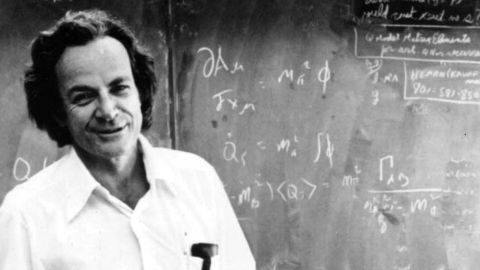The Common Character Trait of Geniuses: A Passion for Abstraction

I’m tempted to say smart, creative people have no particularly different set of character traits than the rest of us, except for being smart and creative. Then, on the other hand, I have written about great physicists. I wrote a biography of Richard Feynman and a biography of Isaac Newton.
These are two great scientific geniuses whose characters were in some superficial ways completely different. Isaac Newton was solitary, antisocial, unpleasant, bitter. He fought with his friends as much as with his enemies. Richard Feynman was gregarious, funny, a great dancer, he loved women. Isaac Newton, I believe, never had sex. Richard Feynman, I believe, had plenty. So you can’t generalize there.
On the other hand, as I tried to get in their heads, understand their minds, the nature of their genius, I felt I was seeing things that they had in common, and these were things that had to do with aloneness. Newton was much more obviously alone than Feynman, but Feynman didn’t particularly work well with others. He was known as a great teacher, but he wasn’t a great teacher, I don’t think, one on one. I think he was a great lecturer. I think he was a great communicator. But when it came time to make the great discoveries of science, he was alone in his head.
When I say “he,” I mean both Feynman and Newton, and this applies, also to the geniuses that I write about in The Information: Charles Babbage, Alan Turing, Ada Byron and ultimately Claude Shannon. They all had the ability to concentrate with a sort of intensity that is hard for mortals like me to grasp — a kind of passion, a passion for abstraction that doesn’t lend itself to easy communication, I don’t think.





